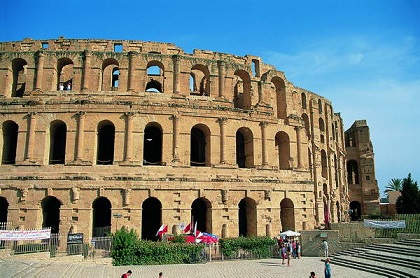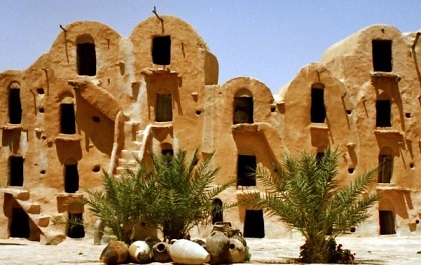Second International Conference on Information Systems for Crisis Response And Management - Mediterranean Countries |
|
Keynote Speakers
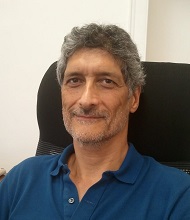 Mauro Dolce Mauro Dolce |
Mauro Dolce, Civil Protection Achievements and Critical Issues in Seismology and Earthquake Engineering Research. Abstract A great complexity characterizes the relationships between science and civil protection. Science attains advances that can allow civil protection organizations to make decisions and undertake actions more and more effectively. Provided that these advances are consolidated and shared by a large part of the scientific community, civil protection has to take them into account in its operational procedures and in its decision-making processes, and it has to do this while growing side by side with the scientific knowledge, avoiding any late pursuit. The aim of the paper is to outline the general framework and the boundary conditions, to describe the overall model of such relationships and the current state-of-the-art, focusing on the major results achieved in Italy and on the many criticalities, with special regards to research on seismic risk. Among the boundary conditions, the question of the different roles and responsibilities in the decision-making process will be addressed, dealing in particular with the contribution of scientists and decision-makers, among the others, in the risk management. In this frame, the different kinds of contributions that civil protection receives from the scientific community will be treated. Some of them are directly planned, asked and funded by civil protection. Some contributions come instead from research that the scientific community develops in other frameworks. All of them represent an added value from which civil protection wants to take advantage, but only after a necessary endorsement by a large part of the scientific community and an indispensable adaptation to civil protection utilization. This is fundamental in order to avoid that any decision and any consequent action, which could in principle affect the life and property of many citizens, be undertaken on the basis of non-consolidated and/or minor and/or not shared scientific achievements. Short BioMauro Dolce is Professor of Structural Engineering (1994-) at the University of Naples Federico II (2007-) and is Director General at the Italian Department of Civil Protection (2006-), where he was Head of the seismic and volcanic risk office until October 2012 and is now scientific consultant of the chief of the Department. As the head of the Seismic and Volcanic Risk Office, he coordinated the Civil Protection monitoring, prevention and mitigation activities in the field of the seismic and volcanic risks. He coordinated technical management in the emergency of the 06.04.09 Abruzzi Earthquake and the 20-29.05.2012 Emilia Earthquake. Research activities carried out in his academic involvement have been mainly related to Earthquake and Structural Engineering, as well as Seismic Risk problems, resulting in about 380 scientific papers, twelve books, eight volume (as editor) and 8 patents. He has been member and convenor of several national and international committees for engineering regulation drafting. He was vice-president of the European Association of Earthquake Engineering (2010-2014) and is currently a member of its Executive Committee (2002-). He is the Italian delegate at the GEM (Global Earthquake Model) Governing Board (2008-). In 2011-12 he led the international expert group investigating the “Rationale and Feasibility of a Global Risk Modelling Initiative” for the Global Science Forum of the Organization for Economic Co-operation and Development (OECD-GSF). |
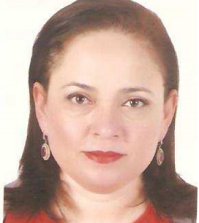 Nissaf Ben Alaya Nissaf Ben Alaya |
NIssaf Ben Alaya, National public health surveillance serves Abstract National public health surveillance serves two main objectives:
Early warning and response (EWAR) is the organized mechanism to detect as early as possible all public health events requiring rapid investigation and response. These events are either unusual events or abnormal patterns in the usually observed morbidity/mortality trends. The objective of this conference in to present the Implementation of an Early Warning and Response system in Tunisia by integration of Event-Based Surveillance to the traditional surveillance system, Emergency and General practitioners networks, environmental data integration and mathematical modeling using time series analysis. Short BioAssociated Professor of Preventive Medicine and Epidemiology General Director of the Observatory of New and Emerging Diseases. |
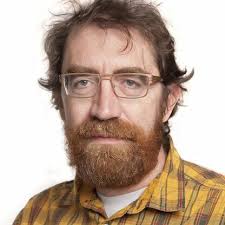 François Charoy François Charoy |
François Charoy Web Scale collaboration and crisis management Abstract During a crisis, especially in catastrophic situations, many people from many organisations gather, physically at the location of the crisis or virtually through different networks to try to cope with the situation. These people belong to different organisations that need to collaborate in an effective and safe way. Supporting the collaboration of this commmunity of people and organisations, helping them to coordinate their actions, to share and make sense of the information that is produced is a challenge for CSCW research. In this talk, we will cover the issues related to coordination and information sharing that may occur during a crisis. We will address them from a social science perspective and from a technical perspective. We will present recent information system and computer science work that aim at supporting collaboration between people at a large scale. We will show how this opens research perspectives and call for adequate methods that requires close collaboration between social scientists, practitioners and computer scientist on the long run. Short BioFrançois Charoy is professor of computer science at university of Lorraine, in Nancy, France. There, he is heading the Inria Coast Project Team that develops research on all aspects of collaboration at a large scale, relying on data sharing and process management. François Charoy was one of the creator of the Bonita BPM software for workflow management and he has been conducting research on all dimensions of coordination between people and organisations. Today he is working on coordination and collaboration at a large scale for collaborative editing or for crowdsourcing acknowledging the fact that with social networks, we need to consider not only groups but community. |


